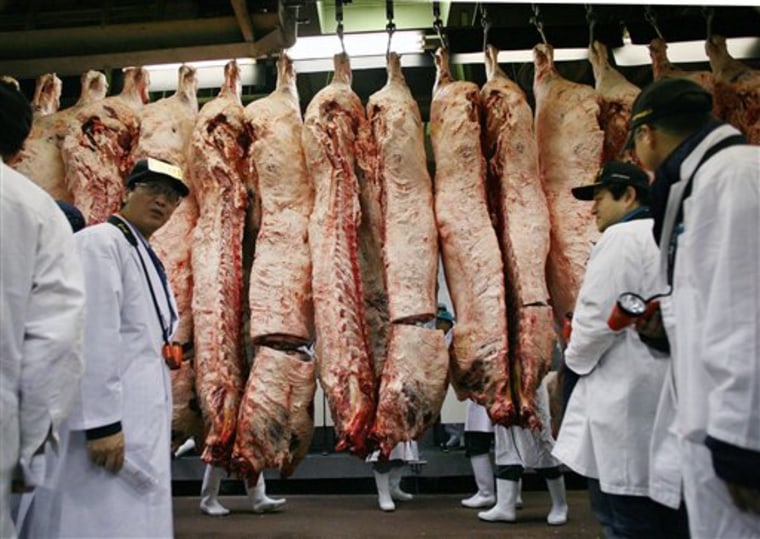Japan plans next week to officially approve a partial resumption of U.S. beef imports, which had been banned due to fears of mad cow disease, according to a news report Friday.
The Kyodo News agency report comes hours after Japan's farm minister said a cutback in the U.S. government's testing program for mad cow disease won't affect Tokyo's decision on whether to resume U.S. beef imports.
Japan had lifted the ban late last year, but then re-imposed it in January after inspectors found a shipment containing banned beef parts. Japan is currently in the final stages of lifting the ban again, with Japanese inspectors returning home Saturday after a monthlong monitoring mission of U.S. meat processing plants, a condition Japan requested in June when it agreed in principle to resume imports.
During their inspection tour in the U.S., Japanese experts visited 35 beef processing plants to see if they comply with safeguard measures exclusively added for their exports to Japan.
The team will compile a report from the inspections, and the government will approve the facilities considered adequately prepared, Kyodo said. A facility with problems will be asked to take measures for improvement and be re-evaluated, Kyodo said.
Earlier Friday, Agriculture Minister Shoichi Nakagawa told reporters that the scaling back of the U.S. Agriculture Department's mad cow testing program announced overnight "will not directly affect" the government's decision on the resumption of beef imports, ministry spokesman Hideo Kawakami said.
The ministry will make its decision based on a risk assessment, not out of political or diplomatic concerns, Kawakami added.
On Thursday, the U.S. Agriculture Department announced it is scaling back its testing program for mad cow disease to one-tenth of what it has been since the discovery of an infected cow in the U.S. That means a reduction from the current 1,000 tests to around 110 tests per day, beginning in late August.
Japan was a huge consumer of U.S. beef before 2003, when it first imposed an import ban over concerns about possible mad cow disease — formally known as bovine spongiform encephalopathy, or BSE — among U.S. cattle.
In humans, eating meat contaminated with BSE is linked to variant Creutzfeldt-Jakob Disease, a rare and deadly nerve disease.
